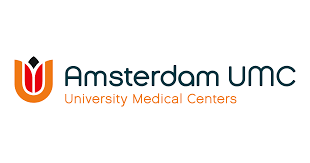HAUPTMENÜ
AWARDS
Forschergeist gefragt: 14. Novartis Oppenheim-Förderpreis für MS-Forschung ausgelobt
FernstudiumCheck Award: Deutschlands beliebteste Fernhochschule bleibt die SRH Fernhochschule
Vergabe der Wissenschaftspreise der Deutschen Hochdruckliga und der Deutschen Hypertoniestiftung
Den Patientenwillen auf der Intensivstation im Blick: Dr. Anna-Henrikje Seidlein…
Wissenschaft mit Auszeichnung: Herausragende Nachwuchsforscher auf der Jahrestagung der Deutschen…
VERANSTALTUNGEN
Wichtigster Kongress für Lungen- und Beatmungsmedizin ist erfolgreich gestartet
Virtuelle DGHO-Frühjahrstagungsreihe am 22.03. / 29.03. / 26.04.2023: Herausforderungen in…
Pneumologie-Kongress vom 29. März bis 1. April im Congress Center…
Die Hot Topics der Hirnforschung auf dem DGKN-Kongress für Klinische…
Deutscher Schmerz- und Palliativtag 2023 startet am 14.3.
DOC-CHECK LOGIN
Hidden bacteria presents a substantial risk of antimicrobial resistance in hospital patients
Amsterdam University Medical Centers
Amsterdam, The Netherlands (January 30, 2023) — Carriers of a specific hidden bacteria have a 14% chance of developing an antibiotic resistant infection with 30 days of hospitalisation, according to researchers from Amsterdam UMC. Researchers studied patients who unknowingly carried the multi-resistant Gram-negative bacteria, a major cause of urinary tract infections and sepsis, and found that almost 1 in 7 developed an infection that very few antibiotics could treat. The results have been published in The Lancet Infectious Diseases.
People can carry antibiotic resistant bacteria unknowingly and without any effects or symptoms. These bacteria are often found in the intestines, in the mouth or on the skin. Carrying these bacteria only becomes a problem if patients develop an infection, which can happen during hospitalisation. If so, it is difficult to treat. And that complicates the treatment those who have been hospitalized for another reason.
Researchers from Amsterdam UMC’s Department of Medical Microbiology and Infection Prevention set out to determine: what is the chance that a carrier of resistant bacteria develops an infection during admission? This knowledge could help hospitals stay alert to antibiotic resistant infections. To answer this question, the researchers dug into the medical literature.
‚Dirty‘ and ‚clean‘ surgery
The study showed that the risk of infection with multidrug-resistant Gram-negative bacteria is on average 14% within 30 days in hospitalized patients. For certain types of bacteria from this group, this chance is as high 19%. This is a significant risk. In comparison infection rates after surgery vary from 1% to around 20%, dependent on the procedure. After a so-called ‚dirty surgery‘ – an operation in a body area with a lot of bacteria, for example intestinal surgery – the chance of an infection is 18-20%. After a ‚clean operation‘ – surgery in a sterile area of the body – it is much lower, around 1-3% within 30 days.
Comparing Bacteria
This research not only exposes the risk of infections, but also facilitates the comparison of different types of resistant bacteria. It also provides tools for comparing the risk to different types of patients: for example, the risk of infection for patients in intensive care differs from that for patients in nursing wards, or for patients with blood cancer. It is therefore important to note that most of the patients in the studies involved were seriously ill. These patients are more likely to get infections.
Breaking Resistance
Antimicrobial resistance is an increasing problem worldwide. This resistance makes some infections increasingly difficult to treat, for which only few and more expensive antibiotics are available. In some countries, there are already problems with infections with bacteria that are so resistant that no treatment is possible. This has led the World Health Organisation to name antimicrobial resistance as one of the ten global public health „threats facing humanity“. With antimicrobial resistance to common antibiotics used to treat, for example urinary tract infections reaching over 90% in some cases. This makes research into the possibilities of stopping carriership of resistant bacteria in the intestine, in order to prevent untreatable infections, even more timely and important.
—-
Journal: The Lancet Infectious Diseases
DOI: 10.1016/S1473-3099
Method of Research: Meta-analysis
Subject of Research: People
Article Title: Incidence of infection with multidrug-resistant Gramnegative bacteria and vancomycin-resistant Enterococci in carriers: a systematic review and meta-regression analysis
Article Publication Date: 30-Jan-2023
COI Statement
MJGTV reports research grants from Astellas Pharma, Biontech, DaVolterra, Evonik, Gilead Sciences, Glycom, Immunic, MaaT Pharma, Merck/MSD, Organobalance, Seres Therapeutics and speaker fees from or consulting for, or both, Alb Fils Kliniken, Arderypharm, Astellas Pharma, Basilea, Bio-Mérieux, DaVolterra, Farmak International Holding, Ferring, Gilead Sciences, Immunic, MaaT Pharma, Merck/MSD, Pfizer, Roche, Organobalance, and SocraTec R&D. All other authors declare no competing interests.
Amsterdam University Medical Centers, 30.01.2023 (tB).



